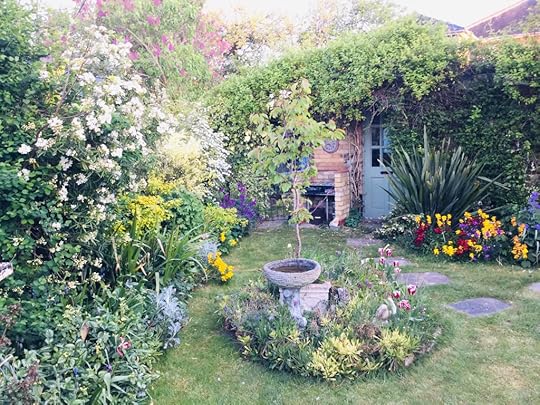Those Not So Funny Names
“Where do I live when I’m at home?” The gypsy laughed to me. “My heartstone’s set in good red loam, and the sky was raised for my own roof-tree. As he hoists his shell on a shiny track, I carry the sky, like a snail, on my back, till it dabbles its eaves in the sea.
Beatrice Ravenel October 1920 poetry: A magazine of verse

Gypies or as they are the Romani people have their origins in the Indian subcontinent and began migrating westwards in the 11th century. The first Romani people arrived in Great Britain at the 16th century to escape conflicts. In 1506 it was recorded Romani people in Scotland, arriving from Spain and they made their way into England by 1512. Soon law makers began to pass laws to stop Romani immigration and assimilation of those already here. In 1530 during the reign of Henry VIII, The Egyptians Act banned Romanies from entering country and required those already living here to leave within sixteen days. Failure to do so could result in confiscation of property, imprisonment and deportation. In 1554 the Act was amended which allow the Romanies to escape prosecution if they gave up their nomadic lifestyle.
The word Gypies is an exonym a name given to an outsiders and is based on the belief that Romanis came from Egypt hence the Egyptians Act. The name calling is deeply offensive and is associated with discrimination. In England the name Gypies is given to people who are seen as dishonest or thieving.
Why am I telling you this? As a small child I was called a gypsy, both in my junior and senior schools. It was a name calling that followed me. “You’re nothing but a dirty gypsy.”
My mother had olive skin, jet-black hair and piercing-blue eyes and I always wondered if she had Gypies blood. I grew up at a flour mill and have never travelled in a caravan so I never understood where the name calling came from. Children tend to get their name calling from what they hear others saying. Now in my 60’s I never expected to be called a Gypsy again, and especially not while standing in my garden by a house I worked hard to buy.
Yesterday while working in my garden, my neighbour and good friend came over to bring me some onion sets they had left over from their planting. We were chatting. It was all lighthearted banter, as I remined them of when we first got to know each other. They had given me onion set then thirty odd years ago as they leaned over the fence and chatted to me as I was tidying up my garden.
I like to think my garden is tidy, but we all have a corner where we hid odds and ends away. My vegetable garden still had its winter look, which is why I was busy working in it. Cutting back ivy, digging over beds and planting my potatoes. My neighbour looked around and said, “My goodness you’re such a Gypsy… Come on, Paula tidy this mess up.”
An arrow went straight through my heart. My inner child felt the pain at hearing such a old familiar word that followed me around childhood playgrounds and journeys home. It was a name of shame. Not being quite good enough. After finding my voice again, I said, “Well, I wasn’t expecting to be called a Gypsy again at my time of life. I have been rather busy and I am the only one to look after the garden.”
I know my neighbour was unaware of my childhood pain and I guess my point in writing this post is to show the word Gypsy still carries the offensive and discrimination it has always had since the Romani people first arrived in Britain.
I of course said nothing of my hurt. My friendship means the world to me. We all forget how painful words can be at times, and I hope my post reminds you all to stop and think before you call someone a name other than their own. Every adult carries their inner child who never forgets the past hurts.
Have a peaceful, beautiful day.
I shall be busy in my garden today.
 This photo was taken last year.
This photo was taken last year.



